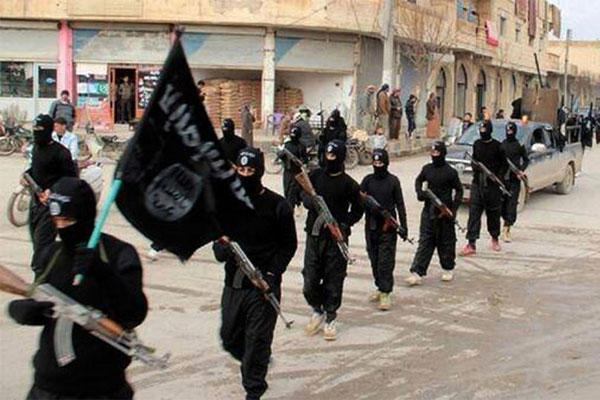The U.S. has yet to confirm initial "credible" reports that ISIS used mustard gas against Kurdish forces in northern Iraq two weeks ago, the chief spokesman for U.S. Central Command said Friday.
Although there was no solid evidence to date, "we are looking into them and taking them seriously," Air Force Col. Pat Ryder, a spokesman for the command, said of the reports that the Islamic State of Iraq and Syria (ISIS) carried out a mustard gas attack against Kurdish Peshmerga forces earlier this month.
Ryder said that it was well known that ISIS was seeking to acquire chemical weapons and "they clearly have demonstrated that they are a barbaric and inhumane enemy."
"But in terms of the current status of that capability, I don't have anything further to provide from here," Ryder said. "We are looking into these reports, but beyond that I don't have anything further," he said.
Related Video
ISIS Propaganda Machine
On Thursday, the German Defense Ministry issued a statement saying that about 60 Kurdish fighters suffered breathing difficulties as a result of the attack near the town of Mahmour, about 40 miles southwest of Irbil, the capital of the Kurdish region.
German troops serving as advisers to the Kurds in the area were not injured, the statement said.
However, German Defense Ministry spokesman Boris Nannt said Friday he could not confirm "in what manner and form" the Kurdish fighters had experienced breathing difficulties.
Mustard gas is a deadly blistering agent that was used extensively in World War I and can be dispersed by artillery shells and rockets.
Several reports from the region speculated that ISIS may have obtained mustard gas in Syria. The regime of Syrian President Bashar al-Assad admitted to having stores of mustard gas in 2013, when it agreed to give up its chemical weapons arsenal.
In an audio briefing to the Pentagon, Ryder said that the U.S. recently conducted airstrikes in the Mahmour area but there were currently no coalition forces with the Kurds on the ground.
Ryder also said that the Iraqi Security Forces were in the "second half of the isolation phase" in a methodical effort to retake Ramadi, the provincial capital of Anbar province,
Since the beginning of July, the coalition has carried out 160 airstrikes around Ramadi to back the ISF as it attempts to encircle the city and cut off supply to ISIS, Ryder said.
ISF troops, including Sunni fighters trained by the U.S. at the nearby Taqaddum airbase, have been involved in disabling improvised explosive devices planted by ISIS on the approaches to Ramadi in preparation for an assault, Ryder said. "This is tough, dangerous work," he said.
-- Richard Sisk can be reached at richard.sisk@military.com




























